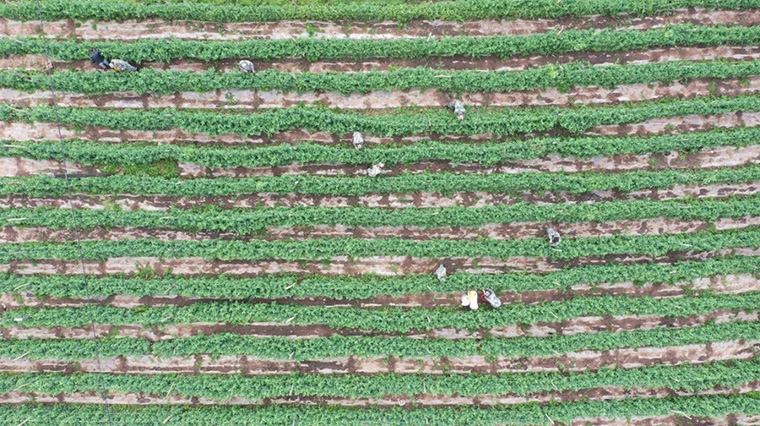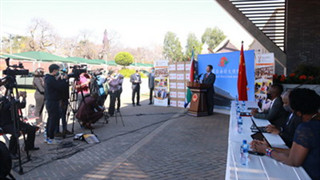Standing on the vast grassland and looking at the Qilian Mountains in the distance, President Xi reminded local government officials to keep overcoming difficulties to achieve high-quality development. Only this way can lucid waters and lush mountains turn into invaluable assets.
Over the past years, the poverty alleviation working team members and village officials have tried their utmost to persuade Ma Ziwu, who ran a large-scale cattle farm, to transit from livestock farming to cash crops growing. They invited agricultural experts to teach him crop growing techniques besides letting him know the importance of protecting ecological environment. Thanks to their joint efforts, Ma has now turned from a “major herder” into a “big grower” in the village. He focuses on planting snap pea, an organic vegetable native to plateaus, which not only makes Ma earn more than cattle breeding but also is conducive to ecological protection.
“I didn’t understand in the beginning, but seeing that the grassland thrives again and the ecological environment gets better, I know what we have done is worth it.” As they see hope just around the corner, many herders like Ma Ziwu closed up their cattle farms and instead built up greenhouses to grow vegertables.
Yang Yonggang, secretary of the Party branch of Xiashiba Village, told reporters that the Qilian Mountains are recovering vibrancy thanks to measures such as returning farmland to grassland and forests, banning grazing and closing mines.
Green, plump snap peas thrive in the greenhouses of Xiashiba Village. The villager Xin Jicheng was busy picking, rinsing, and packing ripe peas.
“We grazed cattle and sheep in the past, which caused huge damage to the grassland and generated only humble incomes,” Xin recalled. “Growing snap peas helps me earn at least RMB 100,000 a year.”
“The snap peas have good appearances and are plump and pollution-free.” Wu Xue’en, a vegetable dealer from Weifang in central Shandong Province, spoke highly of the quality of local snap peas. He has purchased peas from the village for five straight years. The village’s snap peas have been sold to cities and regions thousands of miles away, including Shanghai and Hunan, where they are popular among consumers.
With the help of Yang Weimin, a soldier from a subordinate unit under the PLA Xining Joint Logistics Support Center , villager Yang Fugui built an e-commerce platform in the village, through which he sells local yak meat and organic vegetable to every corner of the country via the internet.

The birds view of a snap peas plantation in the Xiashiba Village ((PLA Daily/Liu Yibo)











